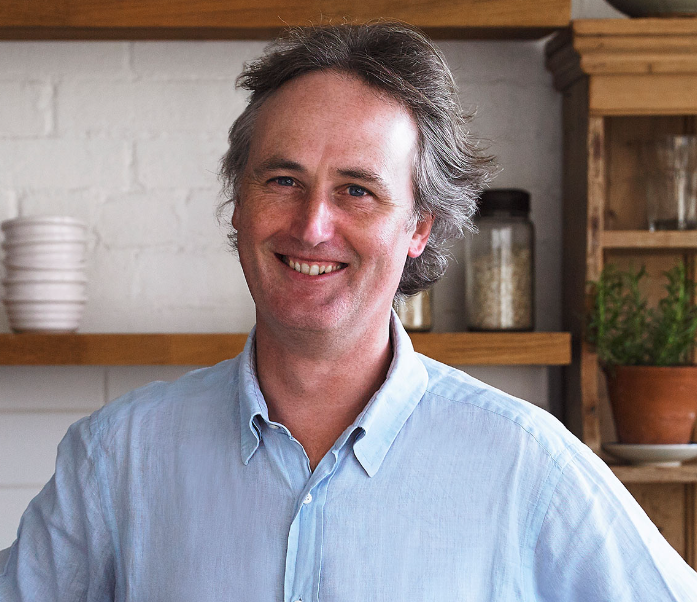Charlie Bigham on inflation, his success and why he doesn’t make ready meals

“We don’t make ready meals at all,” Charlie Bigham, founder of the eponymous food tells City A.M, “nothing we make involves a microwave..it’s about making food which is its food to enjoy rather than food as fuel”.
It’s an interesting revelation, to say the least. For the last 20 years, Bigham’s luxury pre-made chicken tikka and lasagna dishes have sat on the top shelf of every supermarket’s ready meal aisle.
They have also long been a favourite of middle-class shoppers who couldn’t bear to be spotted with Tesco’s own take on the Indian classic – or even worse a Rustlers Burger- in their basket.
But then Bigham drops another bomb, his meals are not “posh” either. “Some people say, ‘Oh, well you must be posh because you’re a bit more expensive than other ready meals’…But we’re actually incredibly good value for money.”
“We’re much less expensive than going out, or indeed a takeaway pizza. And the difference between us and the takeaway pizza is we are much more delicious and are much more nutritious as well,” he explains.
Bigham, now 56, started his food business over two decades ago, packing in a career as a management consultant for a taste of self-employment.
“I started it in a slightly traditional sort of British business way on my kitchen table at home in my flat all those years ago. I wasn’t very good at working for other people. So I thought I’d do my own thing,” he says.
The company is undoubtedly a success story. During the pandemic, revenue reached a record £104.4m as housebound Brits turned to convenience comfort meals.
Bigham credits his longevity in the game to the brand’s focus on creating a meal that is packed with real ingredients as opposed to preservatives.
“We’re providing something which is, in my view, several notches better than a ready meal,” he explains.
“That’s why we’re very fortunate that consumers have come with us on that journey and we get a very high repeat rate. People who buy our food tend to buy it quite frequently,” he adds.
Like most businesses, Bigham admits that the last year has not been without challenges.
A squeeze on suppliers – kickstarted by the Ukraine v Russian war – alongside record inflation has meant the price of his meals has gone up and he said the business has taken a “big hit.”
“It’s been a difficult time with our costs going up and our energy bill more than tripled overnight. In common with most food businesses we’ve taken a big hit on profitability,” he says.
“Our food has gotten more expensive in the last two years. That’s because all of our costs have gone up an awful lot.”
Bigham won’t share how much in total the business has lost as a result of the economic slowdown.
However, a Companies House filing for the year ending August 2022 showed profits for the year reached £3m down from £6m in the prior year.
As food inflation continues to creep down from its record highs seen over the summer, Bingham admits the “dust is settling.”
“Over the last six months, we have seen the dust settling, so energy prices are off their peak,” he said.
With the new year fast approaching, and many dreaming of taking their business off the kitchen counter and into the real world, Bingham also shared some advice for keen entrepreneurs.
He said: “Try to be very focused and then be very persistent. And dare I say obsessive about what you’re doing. Because any business will only succeed if it has a fantastic product or a fantastic service.”